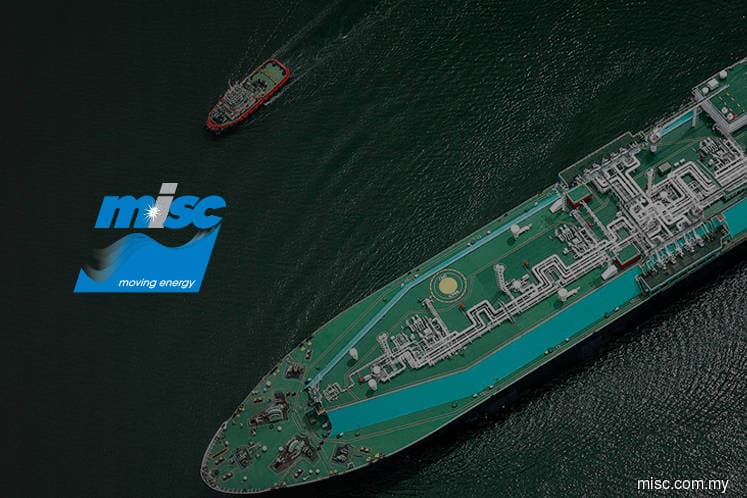
This article first appeared in The Edge Financial Daily on February 18, 2020
MISC Bhd
(Feb 17, RM8.01)
Downgrade to hold with a lower fair value (FV) of RM8.80: We downgrade our recommendation on MISC Bhd to “hold” from “buy” with a lower sum-of-parts-based FV of RM8.80 per share (from an earlier RM9.75 per share), which implies a forecasted financial year ending Dec 31, 2020 (FY20F) enterprise value/earnings before interest, taxes, depreciation and amortisation (EV/Ebitda) of 10 times, on par with its three-year average and a 40% premium to AP Moller Maersk. We expect MISC’s FY19F earnings, which will be announced today, to come in within expectations given that petroleum tanker rates in December 2019 have generally improved year-on-year (y-o-y) with daily charter rates for Suezmax vessels up 69% versus very large crude carrier, soaring 2.3 times to US$95,000 and Aframax up 52% to US$67,000, even though the winter season in the northern hemisphere appears to be relatively mild.
However, we have lowered our FY20F–21F earnings by 3%–5% due to a two percentage-point decrease in spot petroleum charter rate assumptions. This stems from a sharp reduction in petroleum charter rates since the beginning of the year, with the Worldscale flat rates for the Arabian Gulf to Japan dropping 70% to WS 40 level currently, while the Arabian Gulf to US Gulf Coast (USGC) has fallen by 55%.
Worldscale, published by the Worldscale Association (London) Ltd and the Worldscale Association (New York City) Inc, is a unified system of establishing an average total tanker cost for shipping oil from one port to another.
Y-o-y, the Worldscale flat rate for the Arabian Gulf-Japan route is down 6% while the Arabian Gulf-USGC is still up 62%, partly due to the impact of the International Maritime Organization’s (IMO) 2020 regulations on sulfur emissions cap at 0.5% on marine fuels. However, the earlier tanker constraints from the IMO 2020 impact were partly offset by the lifting of US sanctions related to Iran on a unit of Cosco, China’s largest tanker owner, last month.
However, news that China vessels are being denied entry with their crews forced to spend extra time in quarantine at sea is depressing charter rates, given that China accounts for 30% of global shipping. AP Moller Maersk has cancelled 20 shipments to China since the Covid-19 outbreak while other operators are charging a premium.
As the term-to-spot portfolio mix for MISC’s petroleum tanker division has reduced from 65:35 to 60:40, MISC is still susceptible to lower charter rates. We estimate that a 10% decrease in spot charters can reduce the group’s FY20F earnings by 8%.
For the group’s offshore business, speculations are growing of delays in the award of projects in the region given that Brent crude oil prices have fallen below US$60 per barrel on concerns that global demand and economic growth outlook could be dampened by the Covid-19 epidemic.
The stock currently trades at a fair FY20F EV/Ebitda of nine times — 5% below its three-year average and supported by decent dividend yields of 4%. — AmInvestment Bank, Feb 17